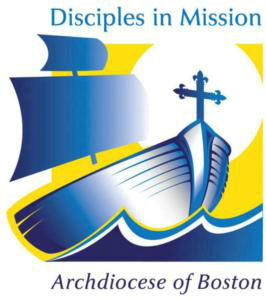They came back!
Less than two weeks into Phase III implementation, pastors and parochial vicars gathered again at the Pastoral Center to discuss strategies for goal setting, problem solving, and decision making, and to re-visit role clarity. Deacon Pat Stokely from the Catholic Leadership Institute (CLI) led the session. These collaboratives have been in existence only a short time and everything is new. In many cases, pastors and parochial vicars are still unpacking and trying to find the best route between their parish churches -- not always a straight line. Even those pastors and parochial vicars who didn't move are working out of a new model of leadership. Case studies and exercises that were abstract a month ago are seen now in a real context.
An aside: Phase I pastors just celebrated their second anniversary. For the most part, this pioneering pilot group is exhausted. And energized. Over the past two years they have brought together a pastoral team and gathered a writing team to prepare their local pastoral plan. The plans have been submitted to Cardinal Sean for review and approval, and the collaborative parishes are more than ready to focus on living out their plans (more on this in a few weeks). Phase I pastors are in a very different position than the 17 Phase III pastors. They are proof that, yea and verily, there is life after saying "Yes" to pastoring multiple parishes using a collaborative model of leadership! Phase I parochial vicars, permanent deacons, parishioners, and pastoral staff, too, have settled in to this new mode of being.
Back to Phase III. The day began with prayerful reflection and discussion of St. Gregory the Great's vision for pastoral care and faithful service. When asked what they found motivating about Pope Gregory, pastors and parochial vicars responded: "his insightfulness"; his "striving for contemplation, but at the same time being open to pastoral care"; "his primary concern is people. He's concerned with how can he best serve the people"; and, "he faced overwhelming responsibility with confidence in God." Articulating a vision and keeping it in sight is not always easy when day-to-day tasks and unexpected problems crop up. Deacon Pat refers to this as the "ministry of interruptions."
They also noted things about Pope Gregory that challenged them: "be honest with yourself and trust"; "how carefully we have to weigh our decisions to make sure we are listening to the Spirit -- and letting Spirit work through us"; "recognizing certain things -- everything can't be done right now. Weigh what mountains you're going to die on. Work through resistance and make changes organically"; and the "conflict in Gregory with maintenance and mission." As one pastor noted, it can be challenging to maintain two separate parishes, keeping parish finances separate -- a directive in Disciples in Mission -- and still collaborate.
Another topic addressed during the afternoon was the importance of challenging assumed constraints: the belief that something can't be done because of past experiences. The question, "What would you do in your parish if you knew that you couldn't fail?" provided the springboard to create a vision for their role as pastor or parochial vicar.
Deacon Pat led the men through step-by-step processes for decision making and problem solving, and then gave a homework assignment: over the next few weeks, apply the skills presented in this session to a problem, organizational decision, or potential improvement in the collaborative.
One of the final exercises of the day offered inspiration -- and some chuckles. Using a suggested template, the priests were asked to write goals. A parochial vicar prepared a goal that really impressed the group. "Achieve: Get my parishioners to heaven. Outcome: Eternal life. When: In mind of God. Achievable?: Already achieved by Christ." After much praise from his brother priests, the author of this worthy goal confessed that he "borrowed" it from St. John Vianney, the patron saint of parish priests. Much good-natured ribbing followed his admission.
Universally, these pastors and parochial vicars are eager to focus on evangelization and making the collaborative parishes even more welcoming faith communities. Deacon Pat encouraged them to take the vision statement they created that afternoon for their specific role -- pastor or parochial vicar -- and incorporate it into their daily prayer. Newly ordained Father Anthony Cusack, parochial vicar in the Dorchester collaborative of St. Ambrose and St. Mark parishes led the closing prayer and gave his blessing to all present.
SUSAN ABBOTT IS COORDINATOR OF PARISH OUTREACH FOR THE ARCHDIOCESE OF BOSTON'S OFFICE OF PASTORAL PLANNING.
- SUSAN ABBOTT IS EVANGELIZATION ASSOCIATE, OUR LADY OF GOOD VOYAGE SHRINE.



















